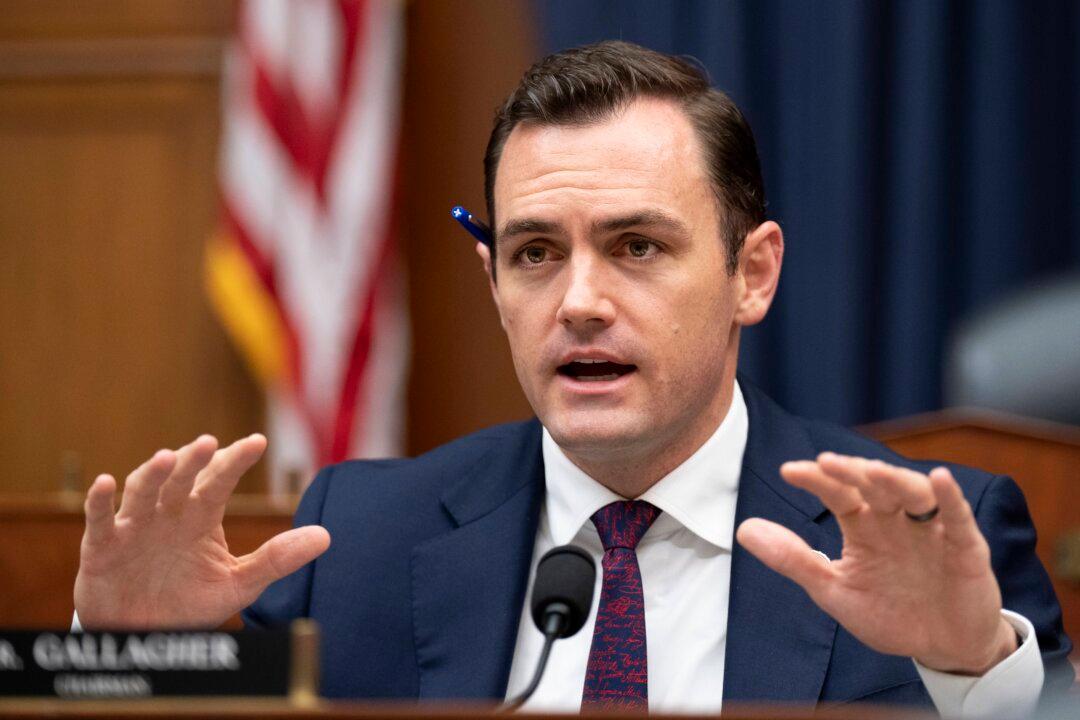Rep. Mike Gallagher (R-Wis.) urged President Joe Biden to take steps to ensure that U.S. investments will not be used to fund the Chinese Communist Party’s (CCP) human rights abuses and technological developments posing a national security risk to the United States.
“For too long, America has funded the CCP’s military buildup, technological ambitions, and human rights abuses and allowed the CCP unconstrained access to our capital markets and dynamism and efficient capital allocation that they enable,” wrote Mr. Gallagher, who chairs the House Select Committee on the Chinese Communist Party.





